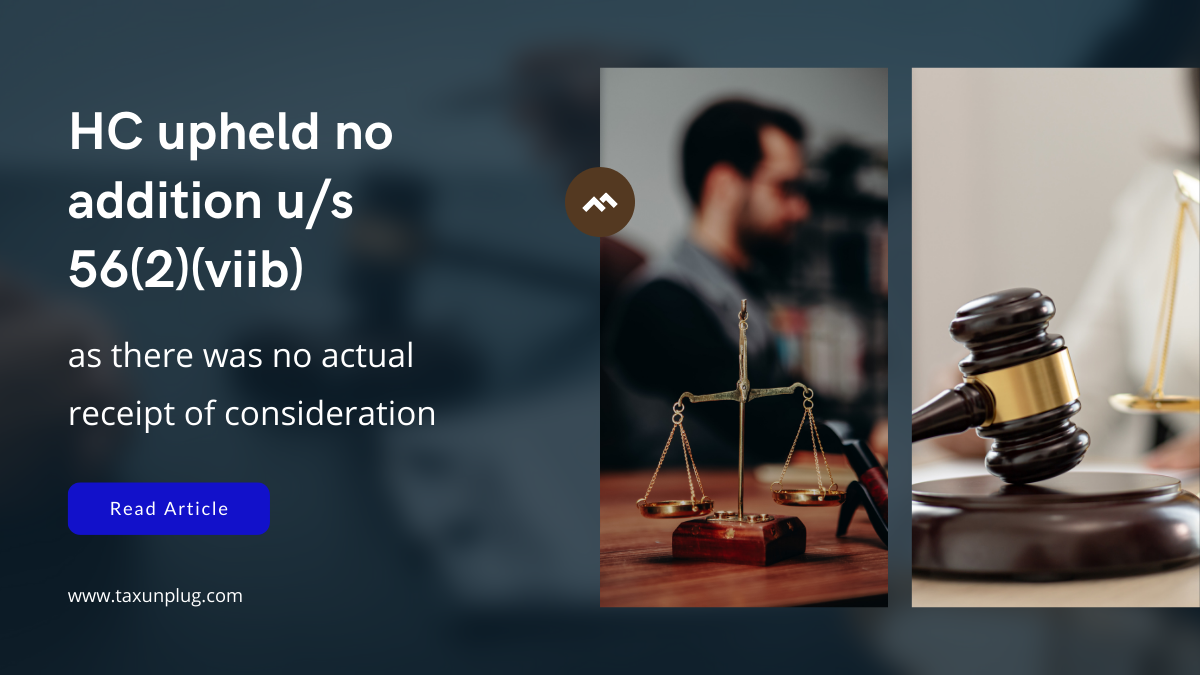HC upheld no addition u/s 56(2)(viib)
Pr. Commissioner of Income Tax-1, Chandigarh v. M/s I.A. Hydro Energy (P) Limited [ITA No.4 of 2024]
The respondent-assessee is engaged in the business of Generation and Distribution of Hydro Electricity in the State of Himachal Pradesh. The assessee had issued 2.25 crores equity shares with face value of Rs.10/- per share for a premium of Rs.90/- per share to M/s Shri Bajrang Power & Ispat Ltd. and Shri Bajrang Energy Private Ltd.
In its reply to the Notices issued u/s 143 of the Act, the assessee stated that prior to 23.02.2017, both the share subscribers were partners in the assessee-firm and the balances were showing as Partners Capital Account. The assessee-company was having opening balance of unsecured loans as on 01.04.2017, which were converted into share capital as per agreement.
According to the assessee, the shares have been valued as per Discounted Cash Flow Method, prescribed in Rule 11UA of the Income Tax Rules and a Certificate was also obtained from the Chartered Accountant, as required under the Income Tax Rules.
The AO argued that the shares were distributed to loan creditors at a premium of Rs 90/-per share whose balance were still due in the books. The AO rejected the Discounted Cash Flow (DCF) value on the grounds that it was fraudulent and had no bearing on the company’s real operations and passed the order u/s 143(3) r.w.s 143(3A) & 143(3B) of Act by making an addition of Rs.202.50 crores under the Head ‘Income from Other Sources’ under Section 56(viib) of the Act, on account of excess amount per share paid as premium.
This was challenged by the assessee-company before the CIT(Appeals), National Faceless Assessment Centre. The CIT(Appeals) deleted the additions made by the AO, in its order. The assessee contended that the addition lacked jurisdiction since the assessee had the authority to select the DCF or NAV approach.
The CIT(Appeals) held that the right to select the method of valuation (NAV or DCF), is vested with the assessee, and the AO erred in substituting the assessee’s method of valuation, i.e. DCF, with his own method of valuation, i.e. NAV method, and had acted completely beyond his jurisdiction, and thus deleted the additions made by the AO.
The Revenue Department challenged this order before the Income Tax Appellate Tribunal, Bench ‘A’, Chandigarh.
The Tribunal went on to note that the AO is not permitted to select a specific method for the valuation of shares because the assessee has the option to do so under Rule 11UA(2) of the Income Tax Rules. The AO is only permitted to confirm the method of valuation chosen by the assessee and cannot replace it with a different method, such as the NAV method, once the assessee has exercised the option for the DCF valuation method.
The AO erred in rejecting the DCF technique and using the NAV method to value the shares merely on the ground that there was a significant discrepancy between the anticipated figures and the actual results available for a few years, the Hon’ble Tribunal found. It cited the Mumbai Income Tax Appellate Tribunal’s ruling in the Creditalpha Alternative Investment Advisors (Pvt.) Ltd. case as support.
The Ld Judges at the Himachal Pradesh High court while agreeing with such reasoning as well as the fact that there was no receipt of consideration during the year, dismissed the appeal of the department. Both the Tribunal and the CIT(Appeals) have held that the AO had no jurisdiction to substitute the NAV method of assessing the valuation of shares, once the assessee had exercised option of a DCF valuation method as per Rule 11UA(2) of the Income Tax Rules
The law is fairly settled that the addition regarding the share capital can be made only if there is actual receipt of consideration and not otherwise. Furthermore, the assessee issuing shares has the choice to value the shares using the DCF or NAV methods. Accordingly, the appeal failed and was dismissed.
To download official order, click here.“The site is for information purposes only and does not provide legal advice of any sort. Viewing this site, receipt of information contained on this site, or the transmission of information from or to this site does not constitute an attorney-client relationship. The information on this site is not intended to be a substitute for professional advice.”

